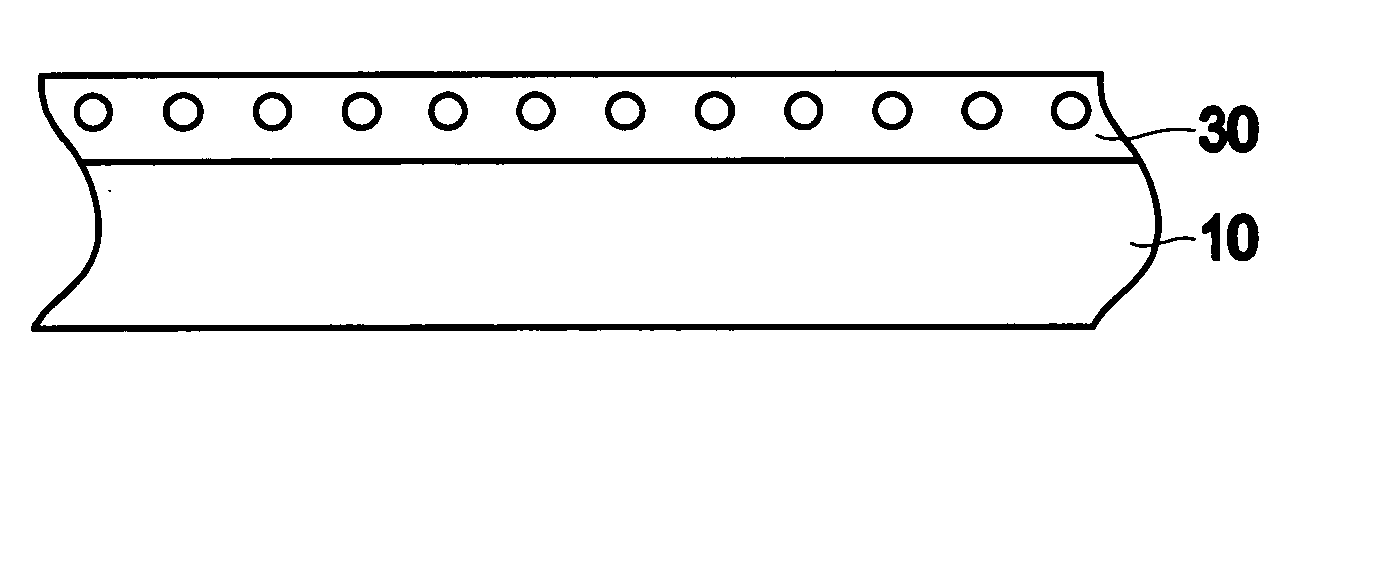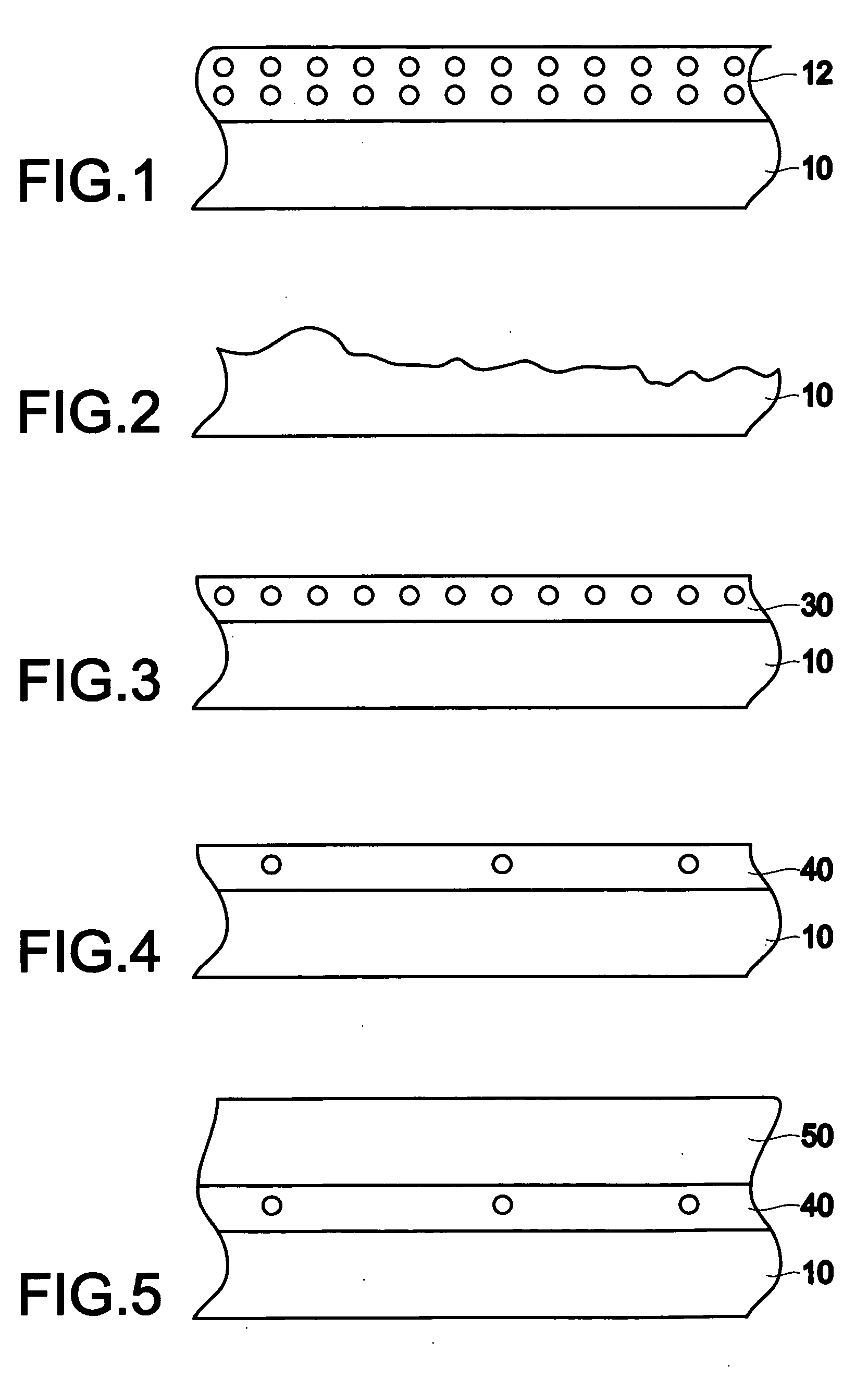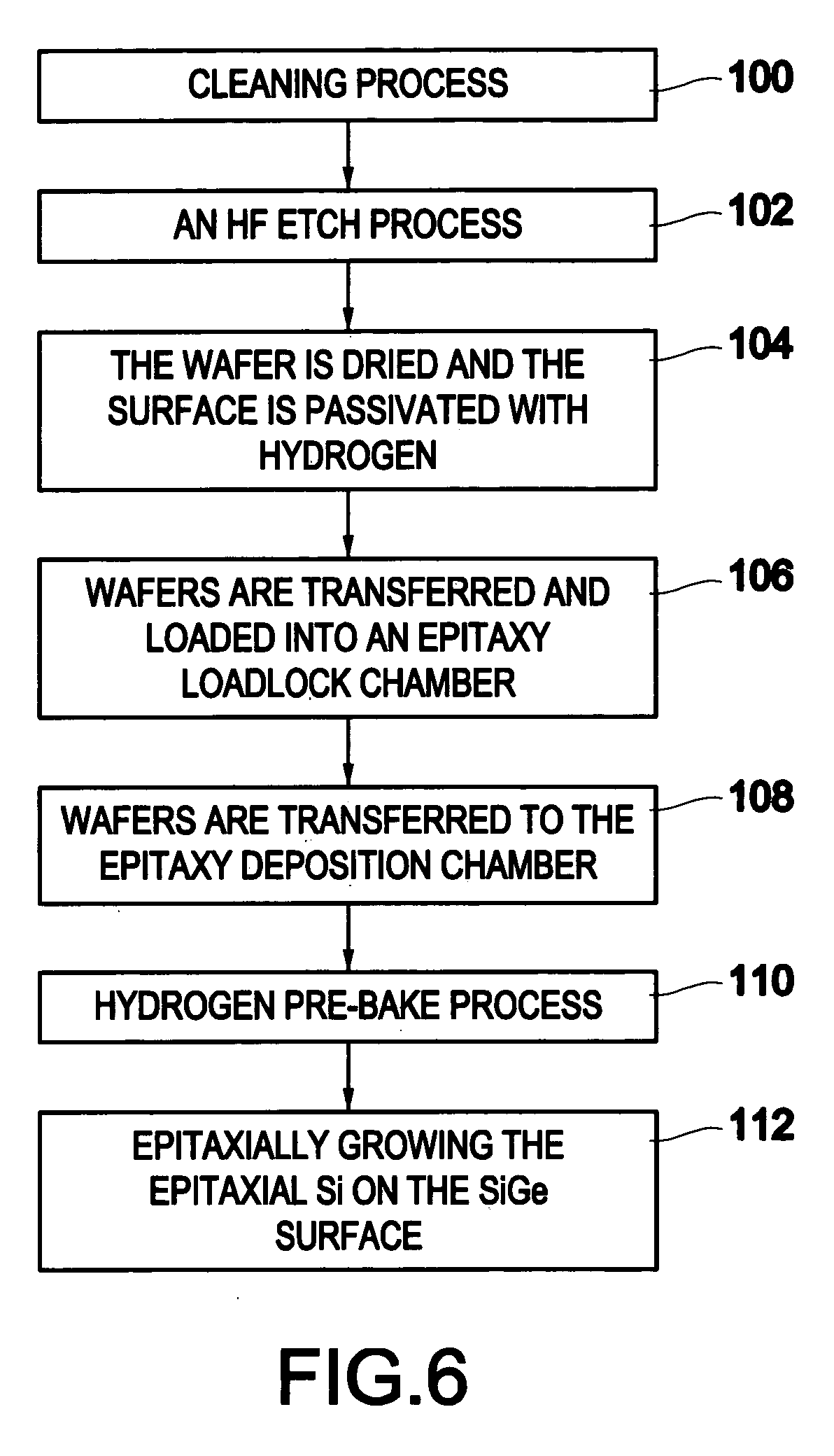Method of preventing surface roughening during hydrogen prebake of SiGe substrates
- Summary
- Abstract
- Description
- Claims
- Application Information
AI Technical Summary
Benefits of technology
Problems solved by technology
Method used
Image
Examples
Embodiment Construction
[0016] The present invention and the various features and advantageous details thereof are explained more fully with reference to the nonlimiting embodiments that are detailed in the following description. Descriptions of well-known components and processing techniques are omitted so as to not unnecessarily obscure the present invention. The examples used herein are intended merely to facilitate an understanding of ways in which the invention may be practiced and to further enable those of skill in the art to practice the invention. Accordingly, the examples should not be construed as limiting the scope of the invention.
[0017] The present invention generally relates to Si epitaxy on a SiGe surfaces that are normally coated with a thin oxide after experiencing an ambient environment. In epitaxial processes, it is important to reduce the amount of oxide on the substrate for a high quality epitaxial film to be grown. If the surface oxygen content is high enough, it will detrimentally ...
PUM
 Login to View More
Login to View More Abstract
Description
Claims
Application Information
 Login to View More
Login to View More - R&D
- Intellectual Property
- Life Sciences
- Materials
- Tech Scout
- Unparalleled Data Quality
- Higher Quality Content
- 60% Fewer Hallucinations
Browse by: Latest US Patents, China's latest patents, Technical Efficacy Thesaurus, Application Domain, Technology Topic, Popular Technical Reports.
© 2025 PatSnap. All rights reserved.Legal|Privacy policy|Modern Slavery Act Transparency Statement|Sitemap|About US| Contact US: help@patsnap.com



